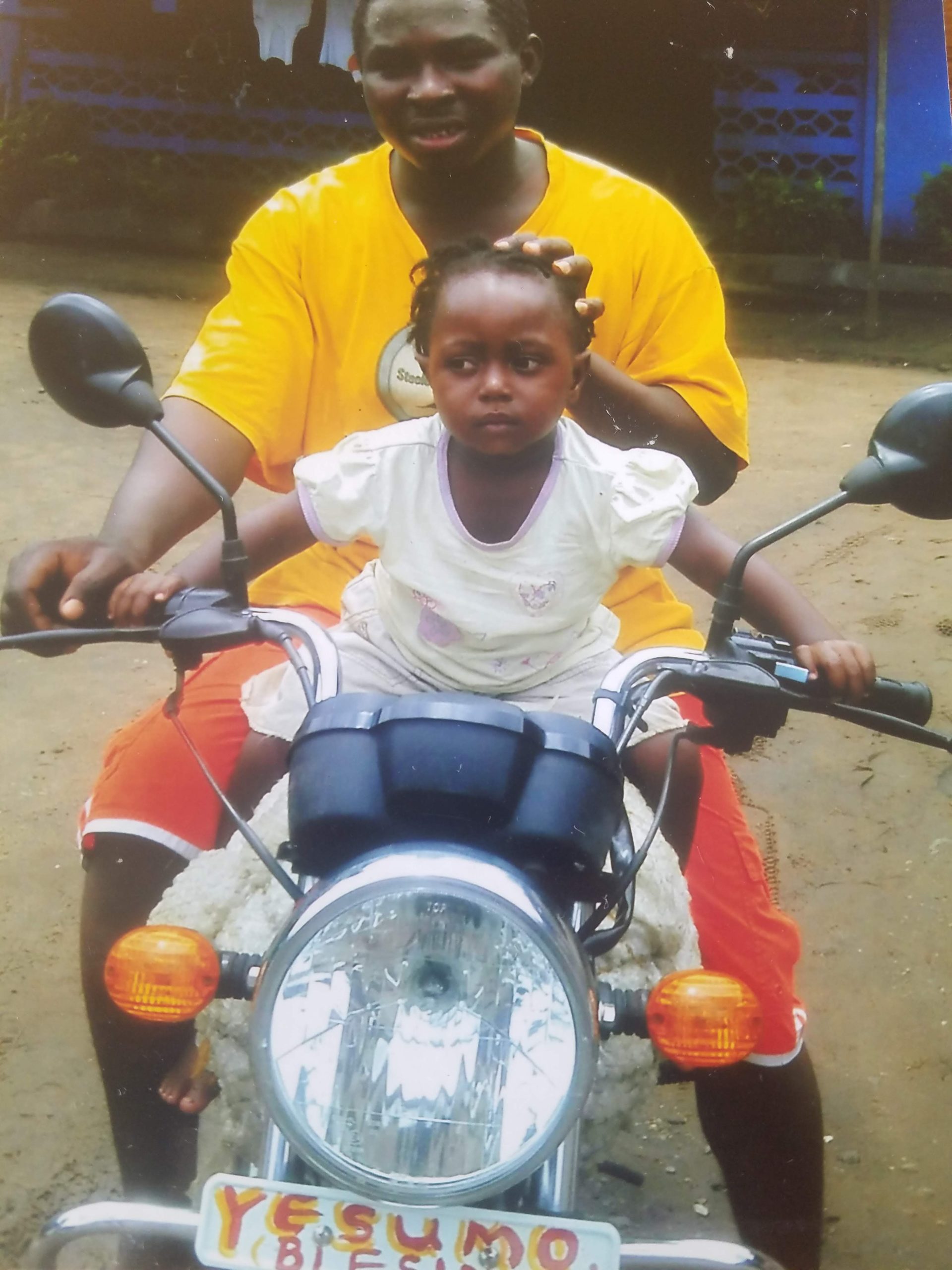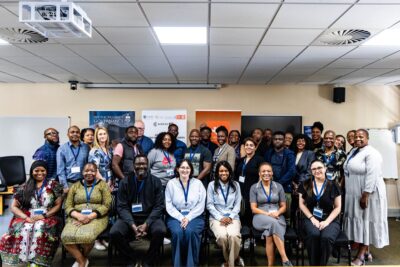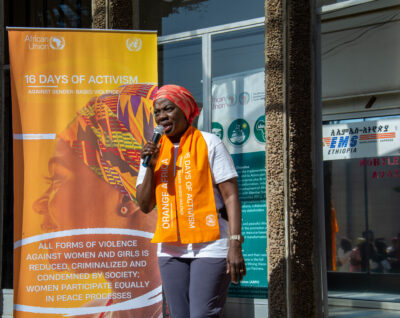Largely confined in self-isolation during the past months because of the ongoing Covid-19 pandemic, I have given much thought to how this crisis influences my research. As a scholar of West Africa, I began to compare the effects of Covid-19 with Ebola, which ravaged that part of the world from 2013 to 2015. The more I think about it, the more I believe distance is crucial for explaining the distinct effects of the two viruses. When it comes to research, distance almost invariably influences the work of scholars who engage in qualitative research and employ methods like interviews, focus groups, and surveys.
In some ways, as an ethnographer for whom fieldwork is a big part of life, I possibly feel some of these effects more than many of my academic colleagues who rely on other methods. While the promise of ethnography is founded on proximity with those studied, viruses impose distance in a way that makes physical proximity if not impossible, then at least threatening. The undermining of ethnography’s unique strength after it moved from armchair anthropology to fieldwork raises the question of how well we can understand others’ lived realities from afar.
Kofi’s story and the perceiving of others’ experiences
In the very beginning of my Covid-19 isolation, I retreated to the past. I sought to distance myself from both the present pandemic but also my ongoing research by looking back at the outbreak of Ebola. It is possible, however, that resurfacing these memories was also an unconscious coping mechanism for dealing with the uncertainties and the worst possible outcomes of the ongoing pandemic.
“I remember the exact moment when I became aware of the horrors of the Ebola epidemic in Liberia.”The localized nature of the Ebola outbreak meant that comparatively few researchers were directly impacted by it. I remember the exact moment when I became aware of the horrors of the Ebola epidemic in Liberia. It was a spring day in 2014, and I was planning to resume my work with former combatants in the country. Walking home from my office I received a Messenger call from one of my friends in northern Liberia. When I asked him how he was doing, he said everything was going well. “The only thing” was that 30 people had died due to Ebola in his home village. Half a dozen were his relatives. At that moment I realized many more would die, and that there was no chance I could return to Liberia anytime soon.
The official number of Ebola victims in Liberia alone was 4,810. This figure includes my friend Kofi. To the best of my knowledge, he and his wife became sick and succumbed to Ebola in late 2014. They were probably cremated before their ashes were buried in an unmarked mass grave.
Kofi was a Ghanaian who had come to Monrovia, the capital of Liberia, to earn money. In the absence of public transport, Kofi would commute by motorbike through the clogged city center, or to roadless areas. During my stay in Monrovia in 2013, I spent most of my evenings with riders who operated from a motorbike parking lot I almost always passed on my way home.
I mostly hung out with Kofi and Tamba, another motorbike rider. The three of us soon developed an almost ritual quarrel over food. I preferred anything but rice, the Liberian staple food. Kofi liked Ghanaian food. Tamba, in turn, did not like Ghanaian food and would not feel fulfilled without rice. Often, the compromise was Fulani food or spaghetti and beans. We used to ride one motorbike to a small and dark restaurant not far from the main street to eat. These evenings were a welcome break for me from more or less everyday discussions about war with former combatants.
After Kofi’s death and my return to Monrovia in 2015, Tamba and I continued our food ritual. Both of us found mourning difficult, so this was our way. Like many others, Tamba and I felt that people dear to us who died during the Ebola crisis had disappeared without a trace.

The only concrete thing we could think of doing for Kofi was to find his daughter. She was perhaps two years old when I had met her for the first time. I photographed her with Kofi on his motorbike. Tracking her and giving her photographs of her father, whom she might not otherwise remember, felt like something Kofi might have appreciated. More selfishly, I hoped this would give me some closure. Yet, Kofi’s former neighbors told us she had been adopted by her maternal relatives, and they had left no contact information. Though we could never lay him to rest, we would always remember Kofi.
The distance of Ebola
“The notion of a new normal itself suggests the artificial and constructed nature of all ‘normalities.’”While friendships meant that the Ebola epidemic became a personal crisis for many researchers, the physical distance to Sweden meant that the virus, at the time of its outbreak, had little direct effect on my everyday life. The distance also meant that I could never really understand how the people I work with in Liberia found ways to endure the crisis, and gradually adapted into what they must have soon experienced as “a new normal.” This normality may be different from mine during the early months of the Covid-19 pandemic, but at the same time not necessarily that different from what was before. The notion of a new normal itself suggests the artificial and constructed nature of all “normalities.” Viruses can also have various effects in different areas, as was the case with the southeastern Grand Gedeh County where I conducted the bulk of my fieldwork. Grand Gedeh largely evaded the Ebola virus. Just as I was finishing this piece, I heard of three Covid-19 cases in the region.
During the months following my return to Liberia, several of my informants told me that they were happy I had not been there during the epidemic. They believed that we could not have interacted during that time, because “everyone was too afraid of other human beings.” By the time I returned Ebola appeared a thing of the past. The only reminder came in the form of Ebola orphans and the stigma suffered by survivors, often women, who had lost their families and were now described almost as if they were cursed. Most of the people I talked to doubted that Ebola was a virus at all, but rather a poison used by the government to get international aid they could embezzle.
The stigmas against groups of people and the prevalence of conspiracy theories that spread through fake news during the ongoing crisis across all societies suggest people are not that different. I too now better understand how life must have continued in Liberia during the Ebola epidemic, just in a different form. I also recognize the fear, irritation, and stress of being around other people in the midst of Covid-19. In discussions with my colleagues within academia especially in Europe, we recognize how privileged we are to be able to conduct the bulk of our work when self-isolating in our homes. This is of course impossible for many others in our own societies, let alone most Liberians and others living in the Global South. For most of the people I know in Liberia staying indoors would equate to starvation. While people may be the same, the difference in privilege is nothing less than astonishing, both within our societies but especially between them. Even worse, they are likely to grow because of the pandemic.
Ethnography from a distance
For an ethnographer, isolation and the closing of borders pose fundamental problems, as it becomes difficult to work in close proximity with others who reside elsewhere. The immediate outcome is that without participant observation it becomes difficult to understand how “new normalities” emerge. Then again, there are bound to be researchers in these locales who may be just as stuck as we are, and hence able to record these processes of adaptation. I hope social scientists can learn from the example set out by medical researchers who early on began to collaborate in researching Covid-19. In this sense, “being with” can, perhaps to some extent, make up for the lack of “being there.”
“Considering how social media is increasingly common even among Liberians who live in areas that lack stable electricity and mobile phone coverage, the internet offers the promise of remaining in touch even during physical distance.”Some years ago, I stumbled into “chatnography,” or conducting my research over social media and instant messaging apps.1Ilmari Käihkö, “Conflict Chatnography: Instant Messaging Apps, Social Media and Conflict Ethnography in Ukraine,” Ethnography 21, no. 1 (2020): 71–91. The main benefit of online ethnography was that it allowed finding people I could talk to long before I physically arrived. Considering how social media is increasingly common even among Liberians who live in areas that lack stable electricity and mobile phone coverage, the internet offers the promise of remaining in touch even during physical distance. I nevertheless soon became aware of the limits of online means of communication in conflict settings. Aware of how easy it is to monitor online activity, my informants noted that there were limits of what they could say over social media. And while it appeared easy to collect narratives, these typically took the form of standard descriptions without the kind of ambiguity ethnography offers the promise of returning in polarized settings.
Early in the current pandemic I pondered whether this or other online methods would allow me to continue research during this crisis. Initially, this did not happen because of my own state of mind. While such remote methodologies may bridge physical distance, Covid-19 also caused distance of a psychological and social nature. Even in this sense, I found the term “social distancing” a misnomer. A virus is contracted through physical proximity, not because we feel close to others or continue to associate with them. Proximity is thus more than simply “being there.” A prerequisite of any research methodologies—offline or online—when researching sensitive topics is proximity and trust. As Covid-19 has forced us to move many of our activities to the internet, I too continue to communicate with many of my informants online.
What I, however, struggled to do was discuss issues distant from the current predicaments. Even in happier times, the topics related to armed conflict I focus on are hardly the most uplifting ones. When threatened with a much more immediate crisis, I, and likely many of the people I work with, think of little else. Even if they would have liked to speak about armed conflicts, it would probably not have mattered. Faced with a potentially life-threatening virus, I found it difficult to focus on something that felt distant from the pandemic I was experiencing in the present. The crisis and its distance to the phenomena I had studied close to a decade turned finding the right words a struggle without joy. While much of writing is done in isolation, the unnatural solitude forced upon me by Covid-19 all but eliminated the social context necessary for writing. I am not the only one to discover that writing is varyingly solitary and intensely social. Physical isolation left me with the former and lacking the latter.
“There was and will be sorrow, and others, too, may struggle to find ways to mourn like I do Kofi.”With a relative lull in the pandemic and because I have gotten more used to the situation, my horizons have since widened. Considering the expectation that Covid-19 will be with us for at least a year, life must go on. This requires the narrowing of the physical, psychological, and social distances that have emerged. We will gradually learn to cope as the situation becomes yet another new normal. And while I experienced the early pandemic as anything but the most productive time for research—especially ethnographic research—I did my best to remain compassionate. There was and will be sorrow, and others, too, may struggle to find ways to mourn like I do Kofi. While I can probably contribute little to understanding the health dimensions of the ongoing crisis, it will be the responsibility of social scientists to help us navigate through the likely long-lasting socioeconomic and political consequences of Covid-19. In doing so, we may well have to reconsider risk and opt for more traditional, long-term ethnographic fieldwork instead of the increasingly popular shorter forays to collect information. This is also an apt time to consider whether the lack of “being there” can and should be compensated through a long overdue emphasis on ethical research collaboration.
The author would like to thank Charlotte Grech-Madin, Camille Pellerin, and Gerald Roche for offering constructive comments and a social context; Mats Utas for encouragement; and the editorial team for excellent editing.
Banner image: USAID/Flickr.













